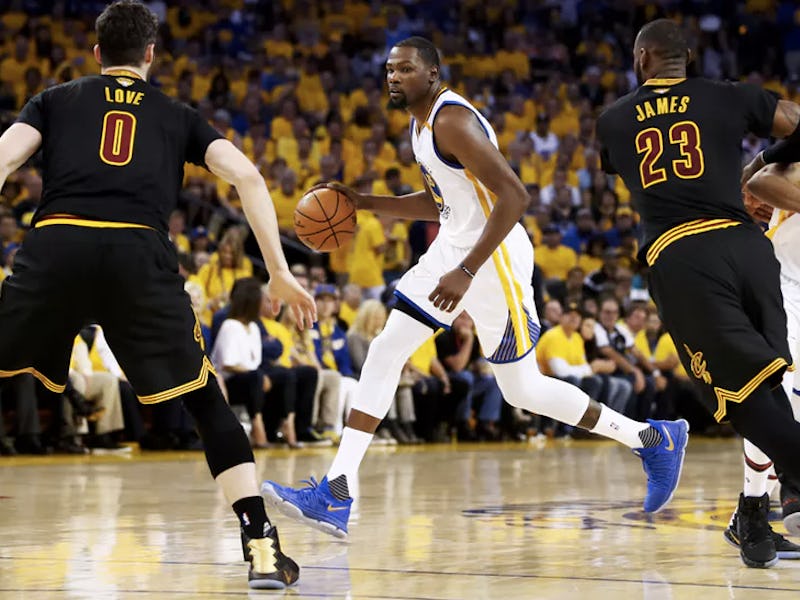Late-Night Tweeting Will Screw NBA Players Over in the Finals

The Cleveland Cavaliers and the Golden State Warriors are in the thick of the NBA Finals, as the world anxiously awaits to see whether the Warriors will again blow a three to one lead. According to a new study, if either team expects to come out on top, players should be locking up their phones at night like their smartphone is a 2002 television and Samara is about to crawl out. Late night Twitter, it turns out, doesn’t just make us normals miserable — it can foul up a top athlete’s performance.
Stony Brook University researchers reveal in a new study that NBA players perform worse in games that follow a night of tweeting between 11 p.m. and 7 a.m. They presented this research on Monday at SLEEP 2017, an annual academic conference on the science of sleep. Their research showed that late-night tweeting meant players took subsequently fewer shots, had fewer rebounds, made fewer steals, and blocked less efficiently. This correlated to player’s scored points dropping by one point less and their shooting accuracy dropping by 1.7 percent — not a huge difference but an important one in games like these Finals, where both teams have an incredible record.
This data came from analyzing 112 verified Twitter accounts of NBA players alongside their basketball statistics collected by Yahoo Sports. The 30,000 tweets were sent out across seven basketball seasons, from 2009 to 2016. The game analysis only included games played in the player’s time zone, in order to avoid the potential data disruption of time-change fatigue.
“Twitter is currently an untapped resource for late-night behavior data that can be used as a proxy for not sleeping,” Jason Jones, a co-author and sociologist at Stony Brook University, says in a statement. “We hope this will encourage further studies making use of time-stamped online behavior to study the effects of sleep deprivation on real-world performance.”
World-class athletes or not, it shouldn’t come as a huge surprise that staying up late on Twitter would result in worsened next-day performance. Previous studies have found that not only does sleep deprivation result in forgetfulness and stress, it makes you less likely to be physically healthy as well.
The good news for the Warriors and the Cavaliers is that it looks like most of their players have stuck to lazy retweets since the Finals began — proving that the likes are nice, but a championship trophy is nicer.